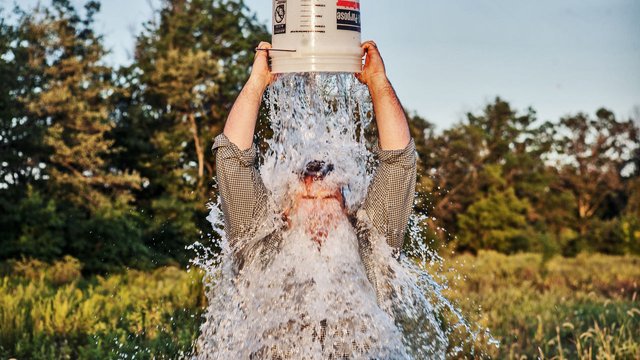
It's been 2 years since the viral trend began that littered our newsfeeds with videos of friends and family dumping cold water over each others heads, and it appears as though it was not in vein...
For those who aren't aware, the Ice Bucket Challenge was a craze that took social media by storm in 2014, wherein people would record themselves having ice cold water poured over their head, post it on social media and nominate their friends to participate in the name of raising awareness and donating funds for a seldom-heard-of disease called ALS or...
Amyotrophic lateral sclerosis - 'a specific disorder that involves the death of neurons that control voluntary muscles (also known as Lou Gehrig's disease) for which there is no known cure'.
More on that here:
https://en.wikipedia.org/wikiAmyotrophic_lateral_sclerosis
The charity crowdfunding activity quickly snowballed in popularity as millions of people (including celebrities) flocked to participate:
Many FAILED in spectacular fashion while attempting it...
Here come the haters...
No social media craze comes without its critics. Plenty of people slammed the charity campaign, denouncing it as 'slacktivism', an activity that alludes to doing good but actually achieves very little, suggesting that participant's motives were self-serving rather than compassionate. Needless to say, the naysayers have been overwhelmingly silenced.
The Discovery!
The campaign raised over $110m in 30 days alone which has gone to fund vital research projects leading to the discovery of a gene variant associated with ALS (NEK1).
The implications of this genetic dicovery are as follows:
- More focussed and novel studies can be constructed to accelerate us towards developing a drug to help treat the disease and improve sufferer's quality of life.
- More effective and concentrated genetic testing will enable much quicker diagnoses of those who may have the disease.
- Our understanding of how this gene is inhereted or mutated will now likely increase significantly which will contribute to the eventual treatment and prevention of the illness (some people can sporadically develop the disease, whereas an existing sufferer has a 50% chance of passing it on hereditarily).
Unfortunately this does not mean that a cure has been found, but meaningful steps in the process to achieve this through future research have been made a result.
The details of the study were published here in scientific journal Nature Genetics:
(http://www.nature.com/ng/journal/vaop/ncurrent/full/ng.3626.html)
The Future for Steemit!
This is just one of many heart-warming and faith-restoring manifestations of how the immense power and cultural influence of social media can do some good in the world. Hopefully as it grows, Steemit can become a social media force to be reckoned with that will also have the capacity to catalyse and initiate great positive impact in the world.
Just wanted to share as I lost a niece to motor neurone syndrome a few years back - If this post generates more than just a few cents I'll be using it to make a donation on behalf of the good people of Steemit.
You can visit the ALS Association's site to learn more about the discovery, donate, or get involved here:
http://www.alsa.org
Thanks for reading.
#ALS #charity #fundraising #socialmedia # potential #power #steemit